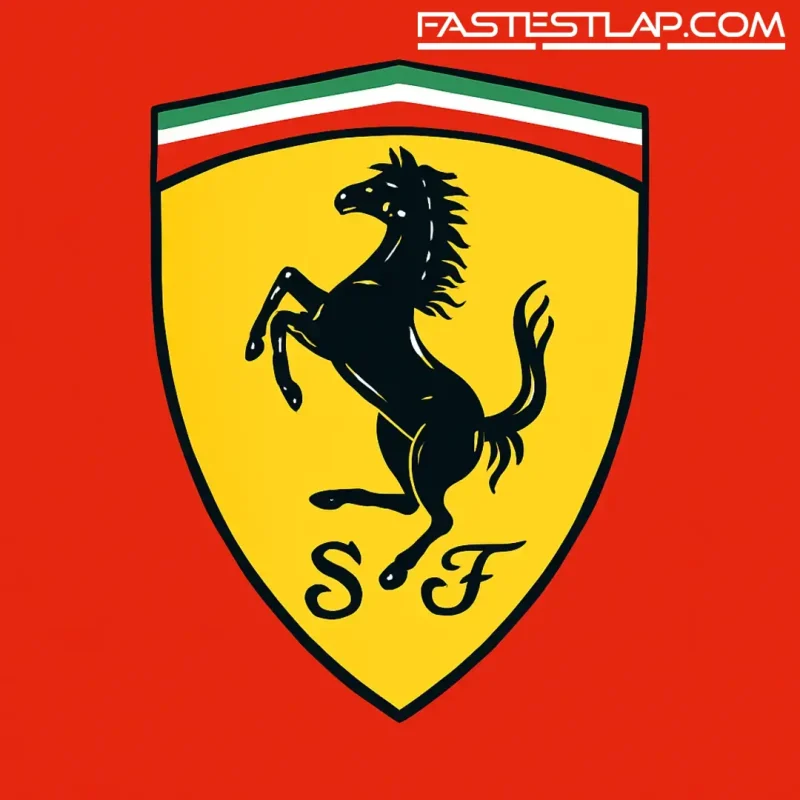Elkann calls Ferrari commitment ‘personal’ as shares slide and F1 form stutters
Ferrari’s Capital Markets Day turned into a rough ride for investors, with the Prancing Horse suffering its worst single-day fall on Wall Street since listing in 2015. By the bell, the New York-traded stock was down 15%, while in Milan it dipped as much as 16% — both record one-day drops since Ferrari went public.
The trigger? Guidance that didn’t thrill the market. Maranello outlined expected revenue of €7.1 billion for this year, aiming for roughly €9 billion by 2030, with adjusted earnings seen at a minimum of €3.6 billion by the end of the decade. Solid numbers on paper, but clearly too conservative for investors banking on the Ferrari growth story to keep its foot in it.
Chairman John Elkann fronted the room and, notably, placed his stake in the brand beyond balance sheets. Calling his link to the team a “personal matter,” he framed Ferrari as both a business and a lifelong passion project.
“My commitment is, as president, as majority shareholder and, above all, as someone who has lived Ferrari as a lifelong passion,” Elkann said. “I am committed to ensuring that every decision we make strengthens Ferrari’s uniqueness. I am committed to our people… to our beloved Ferraristi… and to our loyal fans, eager to see us win in F1, just as we are winning in endurance.”
That last line matters. Ferrari’s endurance programme is purring: the 499P has delivered three consecutive Le Mans victories, the sort of success that usually moves the needle on sentiment. Formula 1, though, remains the public yardstick, and right now the comparison isn’t flattering.
The team has gone five Grands Prix without a podium, and the Lewis Hamilton project — the blockbuster signing of the seven-time World Champion for 2025 — hasn’t yet clicked into the kind of momentum Maranello imagined. It’s early in his Ferrari life, yes, but the combination of muted results on Sundays and the market recoil on Thursday made for an awkward split-screen.
Ferrari CEO Benedetto Vigna didn’t sugarcoat it. “Last time, we made a commitment to win in racing. We achieved it with the 499P in endurance. But, in Formula 1, we must improve. We must win because we owe it to our loyal fans around the world.”
The stakes are familiar. Ferrari hasn’t topped the F1 Constructors’ standings since 2008, and Kimi Räikkönen remains the Scuderia’s most recent Drivers’ Champion from way back in 2007. That drought sits uncomfortably alongside the company’s modern luxury positioning and investor expectations. Winning in WEC proves Ferrari can execute a factory programme at the highest level; winning in F1 remains the brand’s ultimate credibility check.
None of this means the sky is falling in Maranello. Capital Markets Days are choreographed to avoid overpromising; the share price reaction often reflects appetite for a bigger headline rather than a foundational problem. But the timing puts a sharper edge on the F1 operation. When the stock wobbles and the podiums dry up, every strategic call — upgrades, operations, even driver management — gets a little more heat.
Elkann’s “personal matter” line will resonate with tifosi who measure success in silverware, not EBITDA. It also sounds like a line drawn in the sand for Ferrari’s racing bosses: the company can absorb market squalls; it can’t abide prolonged underperformance in the one arena that defines it.
So the brief from the top is clear and concise. Keep selling the dream to investors. Keep winning in endurance. And, urgently, translate that competence into grand prix Sundays. Because nothing steadies the share price — or the grandstands — like a red car on the top step.




